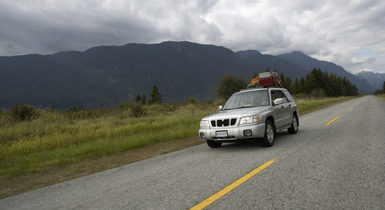by: Matthew Wright
I was once asked why cars can go 100 to 130 mph when it is nowhere near legal to do so. And the reason is a large part of the answer to your question. I have a 1995 Toyota Corolla, manual transmission, with high miles, over 130,000, if that makes any difference at all.
An engine is designed to cruise at speeds of 50 to 70 mph. This speed is in the mid-range of the engine’s capabilities. If you regularly cruised at 100 mph, your engine would be working much harder every day, causing increased wear. By cruising in the mid-range, the engine working a lot easier. It’s like a person can walk a lot further then he can run.
I don’t believe there’s an “ideal” speed. There are too many variables involved — road conditions, weather and driving habits. Every vehicle also has its own sweet spot. Some cars cruise beautifully at 80 mph, whereas another might be struggling to maintain that speed and pushing the engine into a higher than optimum rev range. Regular oil changes greatly reduce wear on an engine regardless of how you’re treating it!
Hands down, most experts will agree that highway driving is better on engines than city driving. On the highway you are going at a steady speed, oil pressure is higher so internal engine parts are better protected and engine temperature is stable. Transmissions last longer since they don’t shift as often. Transmissions wear the most when they shift. As a side effect, brake pads and brake discs last longer simply because you go so many miles between brake applications. All of these things together make for an ideal situation for a vehicle. If you’ve ever heard a driving enthusiast refer to the feeling of their favorite car “at speed,” they are talking about a smooth, fast drive, one that leaves the systems of the car performing perfectly together like a well rehearsed orchestra.
On the other hand, city driving is tough on cars. You are constantly accelerating and decelerating. The transmission is constantly shifting up and down which accelerates wear and the engine idles lower reducing oil pressure and causing more wear on internal engine parts. You use your brakes more often so they will wear out quicker as well. Regular maintenance will always increase engine life.
I guess it would be like a person standing still, then running full speed only to slow down and stop a short time later, and repeating this all day.
In short, engines like to cruise in their mid-range and will do that all day long. The trick is to find the part of your engine’s range that feels comfortable for the car and gives you the gas mileage you want.

